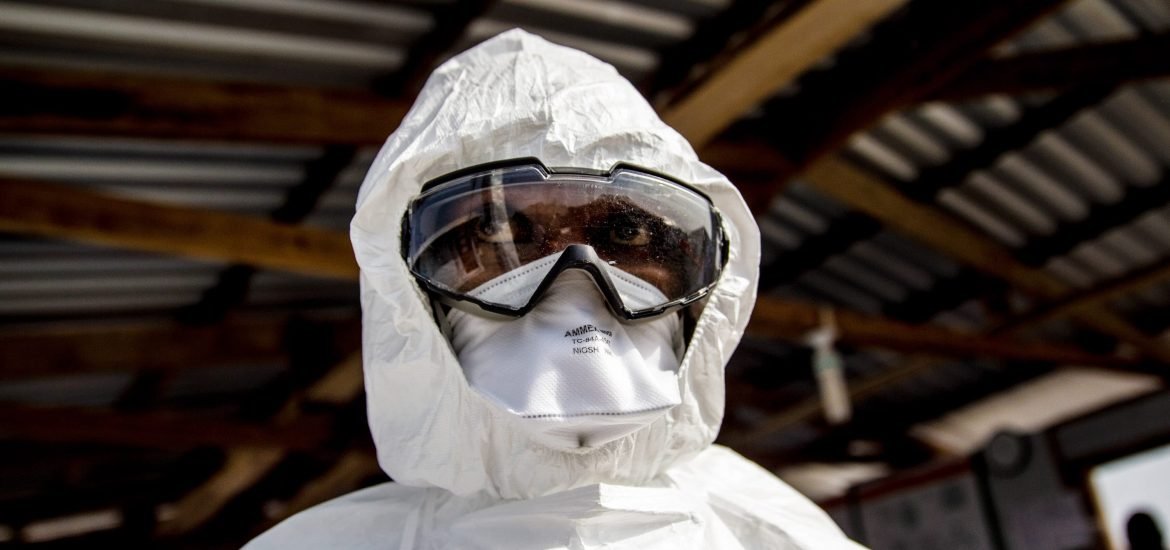
The World Health Organisation (WHO) and partners including Médecins Sans Frontières (MSF) are working alongside national health authorities to stop a new outbreak of Ebola virus from spreading in the Democratic Republic of the Congo.
The current outbreak, which Congo reported on Tuesday, is the ninth known Ebola flare-up to face the central African country since it was discovered there in 1976. Since 4 April, there have been 34 suspected, probable or confirmed cases of the disease, including 18 deaths. Three health workers have reportedly been infected.
At a regular United Nations briefing in Geneva, Peter Salama, WHO’s Deputy Director-General of Emergency Preparedness and Response, said: “We are very concerned and planning for all scenarios, including the worst case scenario.”
Currently, the outbreak is contained in town called Bikoro and a nearby village in the Equateur Province, a remote area in the northwestern part of the country. When travelling by motorbike, the affected area is 15 hours away from the nearest town.
The area’s remote location complicates efforts to send supplies and medical experts to help contain the virus. “This is going to be tough and it’s going to be costly to stamp out this outbreak, ” said Salama.
He added that because the region has “absolutely dire” infrastructure, the WHO plans to send in 20-40 experts by helicopter over the weekend. The team will then clear an airstrip to ease the delivery of additional supplies.
Despite the isolated location of the outbreak, experts are concerned that the disease will spread, especially to the provincial capital, Mbandaka, which is home to 1 million people.
The WHO said on Friday that it hopes to use an experimental Ebola vaccine in order to prevent this from happening.
“This is not a licensed product and there are a lot of complications with using an experimental vaccine which requires to be kept in the long term at between -60 and -80 C,” said Salawa. “This is not a simple logistical effort.”
Many experts have expressed concern about the extent of the outbreak.
“If you have 18 of [34] cases that are fatal, that tells me we don’t know how big the iceberg is — that there’s more that have not been detected yet,” Daniel Bausch, director of the UK Public Health Rapid Support Team, told Vox. Bausch has been advising on the response to the outbreak.
Dr Jean-Jacques Muyembe, director general of the Democratic Republic of the Congo National Institute for Biomedical Research, told The Atlantic the new outbreak could be controlled within three to four months. “We have a long-standing experience,” he told reporter Ed Yong on Friday.
Dr Muyembe was part of the original research team that investigated the first outbreak of Ebola in 1976, and has been studying and combatting the deadly disease ever since.
Numerous aid organisations and governments have already pledged funds to contain the outbreak. The Atlantic reports that, as of Friday, the WHO has released $1 million from its Contingency Fund for Emergencies to tackle the outbreak. On Thursday, a British nonprofit called the Wellcome Trust pledged an initial fund of up to £2 million to support a “rapid response” to the outbreak, while the United Kingdom’s Department for International Development (DFID) said it will contribute an additional £1 million.
Photo: UNMEER/Martine Perret
[…] outbreak began in a remote area of the Equateur Province, but has since spread to the provincial capital of Mbandaka, a port city of 1.2 million people that […]